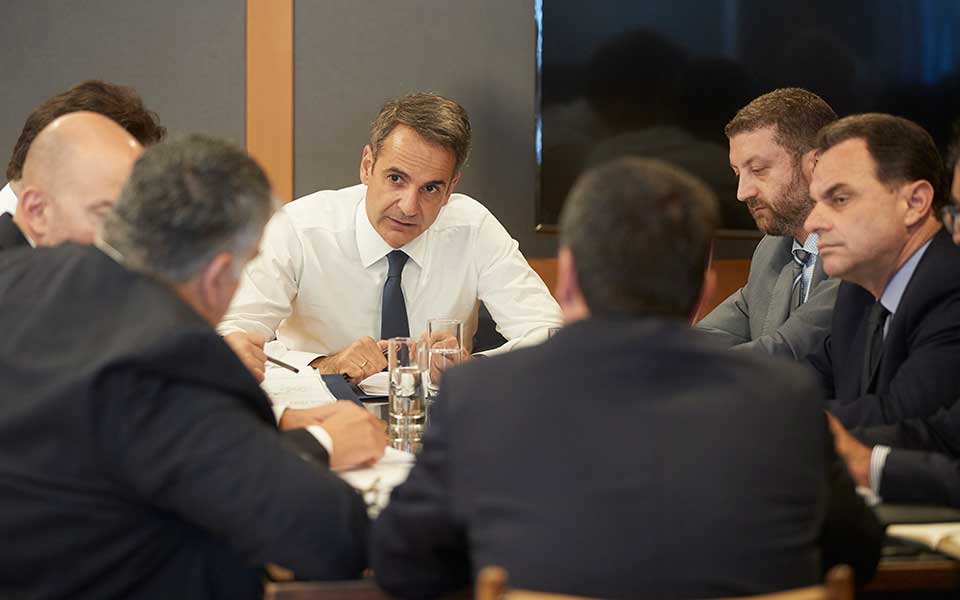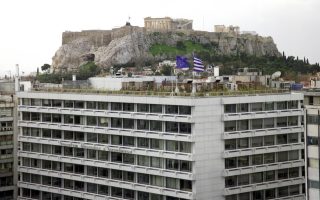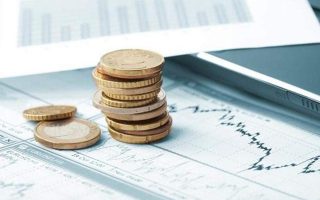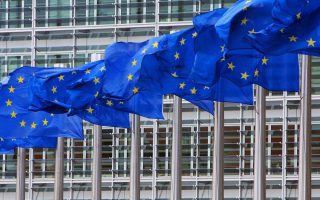A Greek economic renaissance could benefit the broader Arab world

Shortly before Greece’s recent election, the gifted orator and then-prime minister Alexis Tsipras delivered a rousing speech to a cheering throng of supporters, at one point declaring that his main opponent could not achieve what Tsipras was experiencing at that moment: an adoring crowd. “They can’t have a rally like this one,” he said. “They can’t experience the true love of simple people.”
Well, it turns out that Greeks may no longer be interested in the fist-pumping politician with a bag full of promises. Instead, when Greeks went to the polls last week, they discarded the charismatic Tsipras and his leftist SYRIZA party in favor of the decidedly uncharismatic, technocratic center-right leader of the New Democracy party, Kyriakos Mitsotakis. The Harvard-educated former McKinsey consultant was likely more at home delivering a PowerPoint presentation than a rip-roaring speech, but Greeks were in a problem-solving mood looking for solutions to their problem of diminishing incomes, diminishing jobs, diminishing wages and diminishing hope. Maybe a “boring technocrat” is what they need, after all. That, and the bracing effect of further investments from new partners like those in the Middle East, particularly ones with expertise in real estate and tourism development, such as companies to be found in Dubai and Abu Dhabi.
Greece has experienced a lost decade since the global financial crisis of 2008-9 triggered its own debt crisis. It has lost about a quarter of its economic output, faced debilitating unemployment, stagnant and falling wages, crumbling public services and a major exodus of the best and the brightest. Meanwhile, a nearly $300 billion “rescue package” put together by the European Union and the International Monetary Fund came laden with demands for austerity and government job cuts. The austerity cycle sent Greece spiraling downward.
When Tsipras won the premiership in 2015, he faced an unpalatable choice: play ball with the EU and the IMF or go bankrupt. Tsipras was no flame thrower, initial impressions notwithstanding. He chose to play ball, however reluctantly, but he did not inspire business confidence, and the austerity cycle spun onward. The new prime minister, Mitsotakis, has promised deep reforms, tax cuts, job creation and the privatization of services. And whatever he is, he is a man of his word: in 2012, as a minister, he was given the unenviable task of leading EU-mandated job cuts as a result of an earlier bailout. With little support from political allies, he made the cuts.
But when all is said, the fate of Greece should not only be an EU concern. A thriving Greece could boost Arab Mediterranean Sea economies from Morocco to Lebanon. Here is where surplus economies like Saudi Arabia and the United Arab Emirates come in. Investments in Greece should be seen as investments in the Mediterranean region. In fact, the Mediterranean-Red Sea-Indian Ocean economic corridor should be considered rightly as one of the Arab world’s most vital trade routes, touching countries from North Africa to East Africa to the Arabian Peninsula. In addition, Greece can be an important staging post – based on the country’s local knowledge of the Balkan region – for Middle East investors planning deeper forays into that part of central and eastern Europe.
For now, the nearly $500 million MoU signed between Abu Dhabi-based Mubadala, the emirate’s second-largest sovereign wealth fund, with Greece’s New Economy Development Fund (TANEO) to invest in venture-capital funds that specialize in telecommunications, IT, e-commerce and biotech is a good start. But it’s only a start.
Consider what China’s Cosco did with the Port of Piraeus. The Chinese firm had been given a lease to run the port more than a decade ago. The flailing port needed a revamp and Cosco dramatically turned it around, making it the second-largest container terminal in the Mediterranean and, by all accounts, a success story. The Cosco investment shows that there are opportunities for successful investment in Greece, even amid the hardest of times.
And along the lines of transportation, Athens might also want to consider vastly expanding the kind of arrangement it already has with Emirates airlines of Dubai. The carrier flies from Dubai to Athens, picks up more passengers, and then flies on to the New York-area airport of Newark, New Jersey, returning on the same route. Expanding on such “fifth freedom” flights with more Middle East carriers would not just bring more tourists to Greece, but allow it to offer North American travelers the kind of service Middle East airlines are known for. This would constitute a win-win and a win again.
Now, as the economy flickers to life and a new business-friendly prime minister takes the helm, new opportunities abound in infrastructure, services and, of course, tourism (Greece needs more 5-star hotels, for instance). The EU will continue to play a vital role as Greece’s backstop and key market, but emerging world countries like China, the UAE and Saudi Arabia should also play a role as commercial partner and investor.
“The Greeks deserve better,” Mitsotakis said in his inaugural speech as prime minister, “and now is the time for us to prove it.” For him to achieve his goal and for Greece to thrive, they will need to attract foreign direct investment far beyond the EU states. As a linchpin of the Mediterranean region, a Greek economic renaissance could benefit a broad swathe of Arab world economies. For that reason, Arab policymakers should see Greece as not just “an EU problem,” but also a Mediterranean opportunity.
* Afshin Molavi is a senior fellow at the Foreign Policy Institute of the Johns Hopkins University School of Advanced International Studies, and editor and founder of the New Silk Road Monitor. He contributed this article to the Syndication Bureau.





